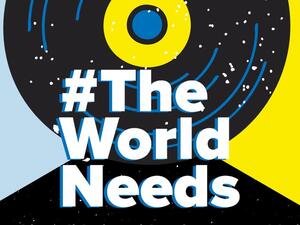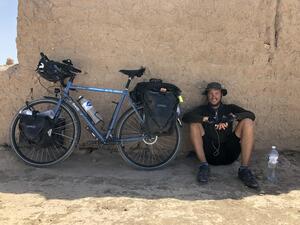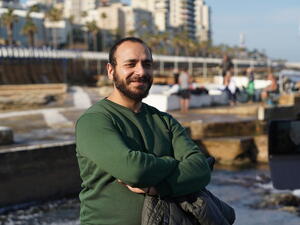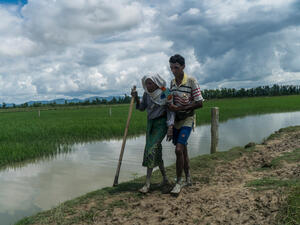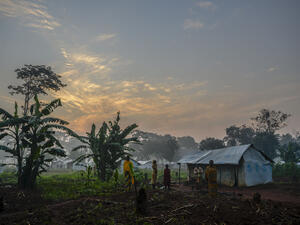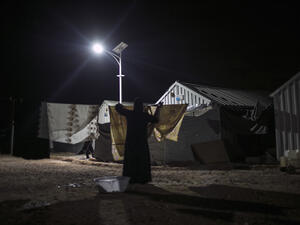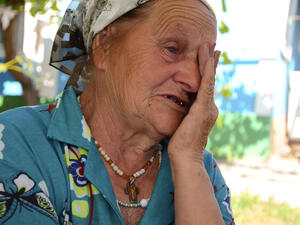Ben Affleck video unveiled for UNHCR "Gimme Shelter" campaign
Ben Affleck video unveiled for UNHCR "Gimme Shelter" campaign

Ben Affleck in Africa during the shooting of the video.
GENEVA, December 17 (UNHCR) - The UN refugee agency, with the help of American actor-director Ben Affleck and British rock legend Sir Mick Jagger, on Wednesday launched a major new campaign to raise US$23 million to help tens of thousands of displaced Congolese civilians.
At the centre of the campaign is the "Gimme Shelter" video directed by Affleck and filmed by John Toll, both Academy Award winners. The short film, which was due to be formally released at a ceremony in New York on Wednesday, is set to the classic Rolling Stones song, Gimme Shelter, which Jagger and the group donated to the campaign.
The footage was shot last month in Democratic Republic of the Congo's (DRC) strife-torn North Kivu province, where some 250,000 civilians have fled for their lives since fighting resumed in August between government forces and rebel troops.
"We made this film in order to focus attention on the humanitarian crisis in the DRC at a time when too much of the world is indifferent or looking the other way," said Affleck. "The suffering and loss we've all seen first-hand is staggering - it is beyond belief."
"Gimme Shelter" captures the suffering of internally displaced Congolese families who fled the fighting with next to nothing and are now forced to find refuge in makeshift shelters with little to live on. Some 30,000 others have fled to neighbouring Uganda and are receiving help from UNHCR.
There are currently 1.3 million displaced people in the DRC, many of them earlier victims caught up in a continuing cycle of violence. The effects of the conflict have claimed as many as 5.4 million lives in the last 10 years, with an estimated 1,000 people still dying every day.
In some areas, two out of three women have been raped. Abductions persist and children are forcefully recruited to fight. Outbreaks of cholera and other diseases have increased as the humanitarian situation deteriorates.
The "Gimme Shelter" campaign hopes to raise US$23 million in 2009 to pay for clean water supplies and for emergency humanitarian assistance kits that contain jerry cans, kitchen sets, thermal blankets, sleeping mats, mosquito nets and plastic sheeting needed for construction of shelters.
The Affleck film will be distributed worldwide via the internet, television, mobile phones, cinemas and hotel chains to raise awareness of UNHCR's global work for refugees and to encourage donations for displaced Congolese.
Jagger described the human suffering in the DRC as appalling and expressed strong support for Affleck's awareness-raising efforts. "The Rolling Stones are very happy to contribute 'Gimme Shelter' in support of Ben's efforts to raise the profile of the conflict in the Congo," Jagger said. "I hope this video will help."
Affleck, who has made four visits to central Africa since 2007, urged more public awareness of this and other conflicts in which millions of people have been forced from their homes.
"I'm urging people not to look the other way, not to turn off their TV when news of the violence in the DRC comes on. We all need to stand up and support the work of organizations like UNHCR who are on the ground offering protection and working hard to ensure the rights and well-being of refugees," he said.
UN High Commissioner for Refugees António Guterres thanked Jagger, Affleck and other "Gimme Shelter" supporters for their efforts. "Refugees are among the most vulnerable of the vulnerable and we at UNHCR are grateful for the compassion, concern and commitment shown by those involved in this campaign," he said. "Their contributions will have a direct impact on the lives of uprooted people not only in the DRC, but around the world."

